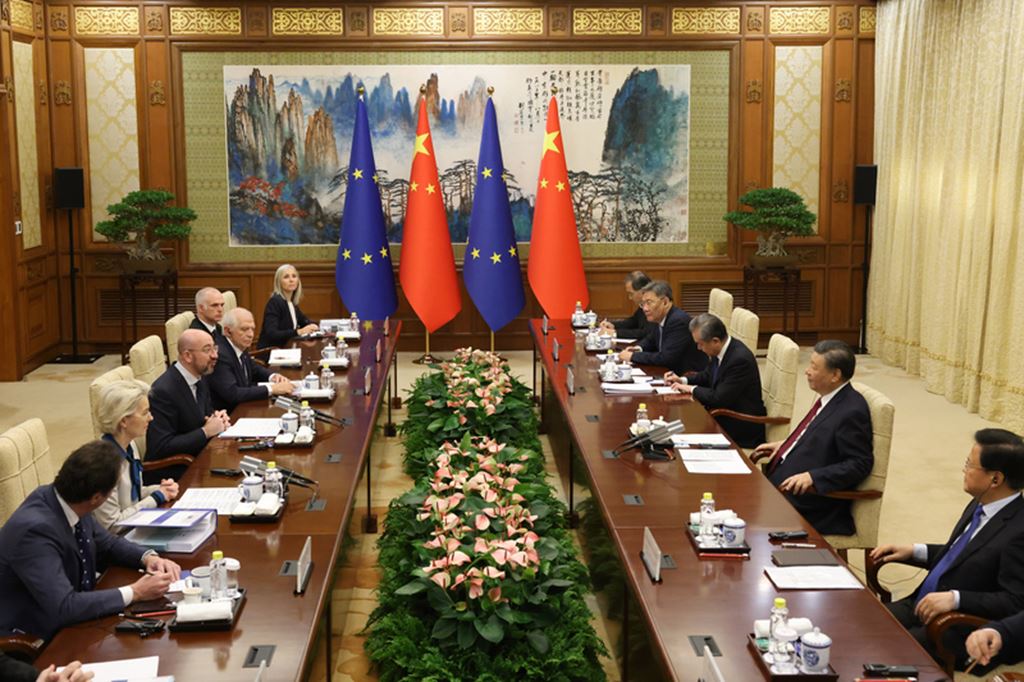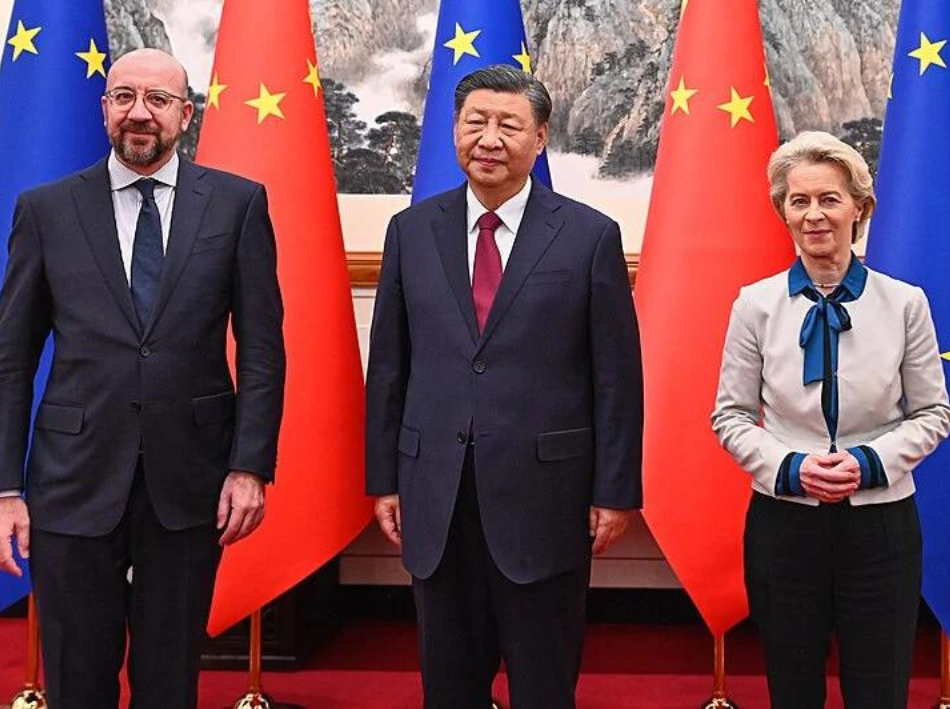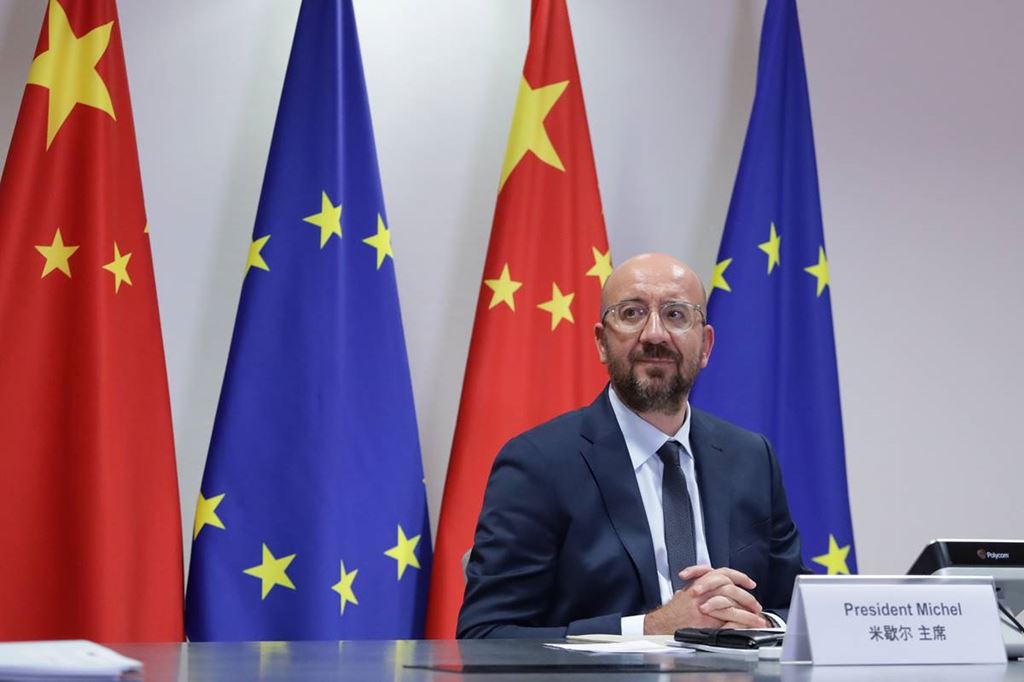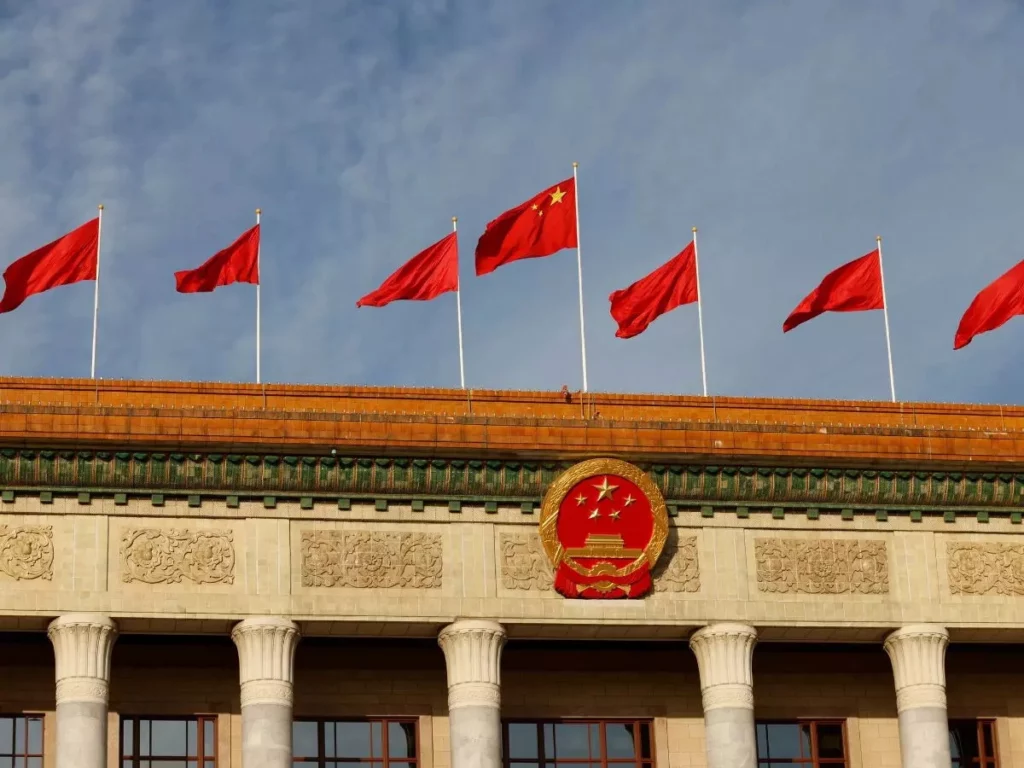EU-China Summit leaves big questions for European Union
On December 7, Beijing hosted the 24th EU-China Summit, the first in-person summit between the two since 2019. President of the European Council Charles Michel and President of the European Commission Ursula von der Leyen, accompanied by High Representative Josep Borrell, representing the EU, met Chinese President Xi Jinping and Premier Li Qiang in two separate sessions.
The summit between EU and Chinese leaders marked the capstone of a year of intensive in-person engagement between Chinese and European officials and followed a series of regular high-level dialogues between Brussels and Beijing, as well as a visit by EU VP Borrell in October.
The summit provided an opportunity for the EU to engage with China at the highest level to enable constructive and stable relations. The focus of the summit was not only the state of EU-China relations, but also Russia’s war of aggression against Ukraine and the situation in the Middle East.
Chinese President Jinping called for China and the European Union to be partners for mutually beneficial cooperation, strengthen two-way political trust, build strategic consensus, cement the bonds of shared interest, steer clear of various kinds of interference, step up dialogue and cooperation for the good of our people. This year marks the 20th anniversary of the China-EU comprehensive strategic partnership, said President Xi, adding that at this new starting point of China-EU relations, both sides need to take stock of history, navigate the trend of the world, act with wisdom and a sense of responsibility, and uphold the comprehensive strategic partnership.
Ahead of the December 7 summit, China had sent several conciliatory signals, as it did ahead of President Xi’s meeting with United States President Joe Biden on the margins of the APEC summit in San Francisco last month. The recent announcement that China will roll out visa-free policies to five EU countries namely Spain, France, Germany, Italy, the Netherlands on a trial basis from December 1 to November 30, 2024, is one of the most positive moves by the Chinse authorities, and an important public relations exercise by China. This also means the move is a milestone in EU-China relations since people-to-people exchanges are one of its pillars.
For the EU, the summit offered an opportunity to engage with China at the highest level and to pursue constructive and stable EU-China relations. The leaders discussed ways of ensuring a more balanced and reciprocal trade relationship, as well as areas of shared interest such as climate change, food security, global health and pandemic preparedness.
De-risking
The focus of the one-day summit was “de-risking,” which relates to the EU’s current effort to reduce reliance on China in key sectors. Brussels wants to show that they have new policy tools to get serious with de-risking, while the key objective for China is to try to hinder the EU’s progress on implementing policies related to de-risking. The summit was held amid a deepening rift between the two sides, as the EU hopes to level the playing field in trade while Beijing tries to highlight the need to maintain bilateral cooperation. In the summit, the EU advocated the need to support the multilateral rules-based international order and recall the EU’s approach to de-risking and economic security.
Politically and strategically, the developments, problems and challenges in EU-China relations was the key on which the 24th Bilateral Summit took place. It also took place amid signs that something is rotten in the Imperial Court of Jinping. While the world is distracted by war in the Middle East and Ukraine, a Stalin-like purge is sweeping through China’s ultra-secretive political system, with profound implications for the global economy and even the prospects for peace in the region.
Earlier this year, the European Council had reaffirmed the EU’s multifaceted policy approach to China, which is based on the understanding that the country is simultaneously a partner, a competitor, and a systemic rival. Based on the outcome of the summit, it can be said that for EU balancing act is increasingly becoming more and more difficult.
Watching China in Europe and the evolution of Europe’s relationship with Beijing, my observation is that EU, one of the most important transatlantic trade partners, will need clarity and cohesion in its China policy. With bilateral trade touching more than EUR 2 billion a day, it is very difficult to imagine how EU can make a realistic and independent trade policy towards China without sacrificing its economic interests.
The EU leaders wanted Beijing to finally stop Chinese companies from helping Russia import EU dual-use goods, or high-end tech made in Europe that Russia needs for its weapons. They also wanted China to start addressing the massive trade deficit of EUR 400 billion which Europe believes is artificially inflated by numerous Chinese restrictions on imports and subsidies for its key exports.
Non-committal
Although EU leaders tried to convince China to change its course on its Russia policy in the context of Ukraine, they could not extract any commitment or even assurance. On the issue of Ukraine, Jinping has so far pretended to be a bystander and friendly with Russian President Vladimir Putin, but not keen on helping him.
And the EU leaders have been all too willing to close their eyes to any evidence pointing to Chinese involvement. Even if China makes a tactical move on these issues, the EU faces deeper, structural problems due to Chinese overcapacity and subsidies. That concern, EU officials fear, is compounded by the recent sluggishness of the Chinese economy, which could dampen local consumption and drive Chinese products outward.
Carbon tax
It is learnt that Beijing, for its part, complained of unfair trade practices, criticising the EU’s investigation into subsidies received by Chinese electric vehicle exporters and the EU’s planned Carbon Border Adjustment Mechanism (CBAM), which began a trial phase in October and could bring substantial new tariffs for Chinese exporters of carbon-intensive products by 2026.
Incidentally, India will also be affected by the CBAM. The market access issues were high on the agenda at this summit, where prospects for concrete progress appeared equally dim, given entrenched policies on both sides.
Comprehensive Agreement on Investment
At the summit, Chinese leaders pursued the ratification of the Comprehensive Agreement on Investment (CAI), a proposed deal between China and the EU. The agreement, already endorsed in principle by EU leaders in December 2020, still awaits ratification by the European Parliament. 
For the EU, the CAI seeks to enhance market access for EU companies in China, addressing issues of asymmetry in market openness. It also seeks to establish explicit regulations on Chinese State-owned enterprises, “subsidy transparency”, and prohibits practices such as “forced technology transfers”, aiming to create a fairer and more balanced economic relationship.
As such, the EU believes that CAI can help stabilise interests of EU business leaders to invest in China and to further develop trade relationships.
It is learnt that EU officials simply replied that the ratification depended on the European Parliament. As the election of the new Parliament and a setting up of a new Commission is to take place in the next six months, it is very unlikely that EP will take up the ratification issue anytime soon.
The EU’s self-confidence proved relatively short-lived as it failed to move China on any issue that it had hoped to get China agree to. The only positive development that can be noted is that China has agreed to constructively engage on the human rights issues.
The EU officials have been careful to keep expectations for the summit low, in terms of a joint statement, of which there was none, or announcements on concrete deliverables, with one official suggesting that simply holding the summit is a deliverable.
This echoed some of the expectations management in advance of President Xi’s meeting last month with Biden. Ties between Europe and China have never approached the level of distrust and tension that has characterised the US-China relationship and senior-level diplomatic engagement has never been at serious risk of dropping off, even if tensions are higher than they were a few years ago.
China’s most famous international face, Foreign Minister Wang Yi was present at the meeting and his input was key to China’s policy. Was this EU-China summit another ‘dialogue of the deaf’?
Not really but the summit yielded little more than ‘photo ops’ and a forum to exchange talking points. It proved to be as empty as anticipated, and this should spark the EU to rethink its approach to these meetings. A return to in-person summits was not a return to business as usual between the EU and China and no amount of personal engagement between these leaders could paper over growing economic and political strains in the relationship.
The question is how much longer EU leaders can afford to have meetings that are heavy on rhetoric but devoid of tangible outcomes as they drive a shift in Europe’s economic security approach to China and face potential retaliation for their approach from Beijing. Now it is for China strategists in India how to take advantage of the rising gulf between EU and China.
Even though China has for quite some time topped the EU’s Asian agenda and India appears as a somewhat distant runner-up, both in terms of economic and political importance, there are some avenues for India to fill the vacuum. Unless India takes this seriously, this gap is unlikely to narrow anytime soon as China’s global footprint continues to increase rapidly. For the EU, relations with Beijing have become second only to those with Washington, and any development in EU-China relations will have bearings for India.
In view of the changing dynamics in bilateral trade and economic relations between EU and China, can India rise to take advantage?
(Sunil Prasad is the Secretary General of Brussels based Europe India Chamber of Commerce and the views expressed here are his personal views.)












